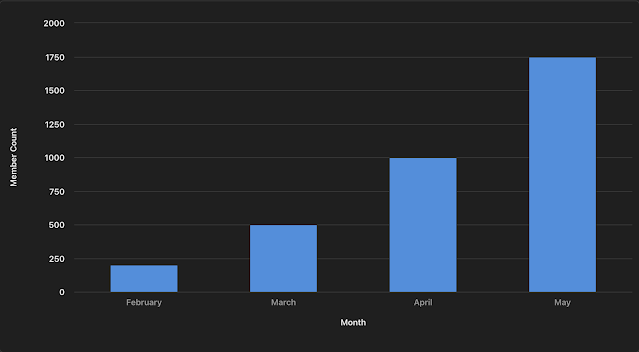Fractionals United Is 4-Months Old (Karina Mikhli)
Fractionals United has turned four months old today and we have over 1750 members. Below is a chart showing our growth month over month.
This is the first time I've shared our growth metric on social media since we hit 1000 members, since it's no longer my primary goal and focus. As other founders with limited resources have discovered before me, and many will discover after me, it is best to focus on one major goal. If you try to focus on more than one at a time, you risk not accomplishing any well.
My first focus had been to get us to 1k members, which I was told was when we'd become attractive to sponsors. My current focus is getting sponsors to support the community. Many from within and without have told me to just charge a small membership fee, and although in principle that is not wrong, given that it is so hard for fractionals to find work, it is wrong in this instance for me and this community.
I do fortunately have volunteer leaders and other fractional community leaders who have joined Fractionals United.
- The volunteer leaders have stepped forward and give of their time to further the goals of the community.
- And the fractional community leaders who have joined my community agree with me: we are not competing with each other but instead are trying to help fractionals everywhere. We are stronger and better together and with our collective experiences, skills, and insight, we will accomplish way more than we can do so individually.
So although my resources and budget may be currently constrained, my options are not, given the talented and abundance-minded fractionals I get to interact with daily.
Thank you to each and every one of you and here's to everything we can—and will—accomplish together.

.png)
Comments
Post a Comment